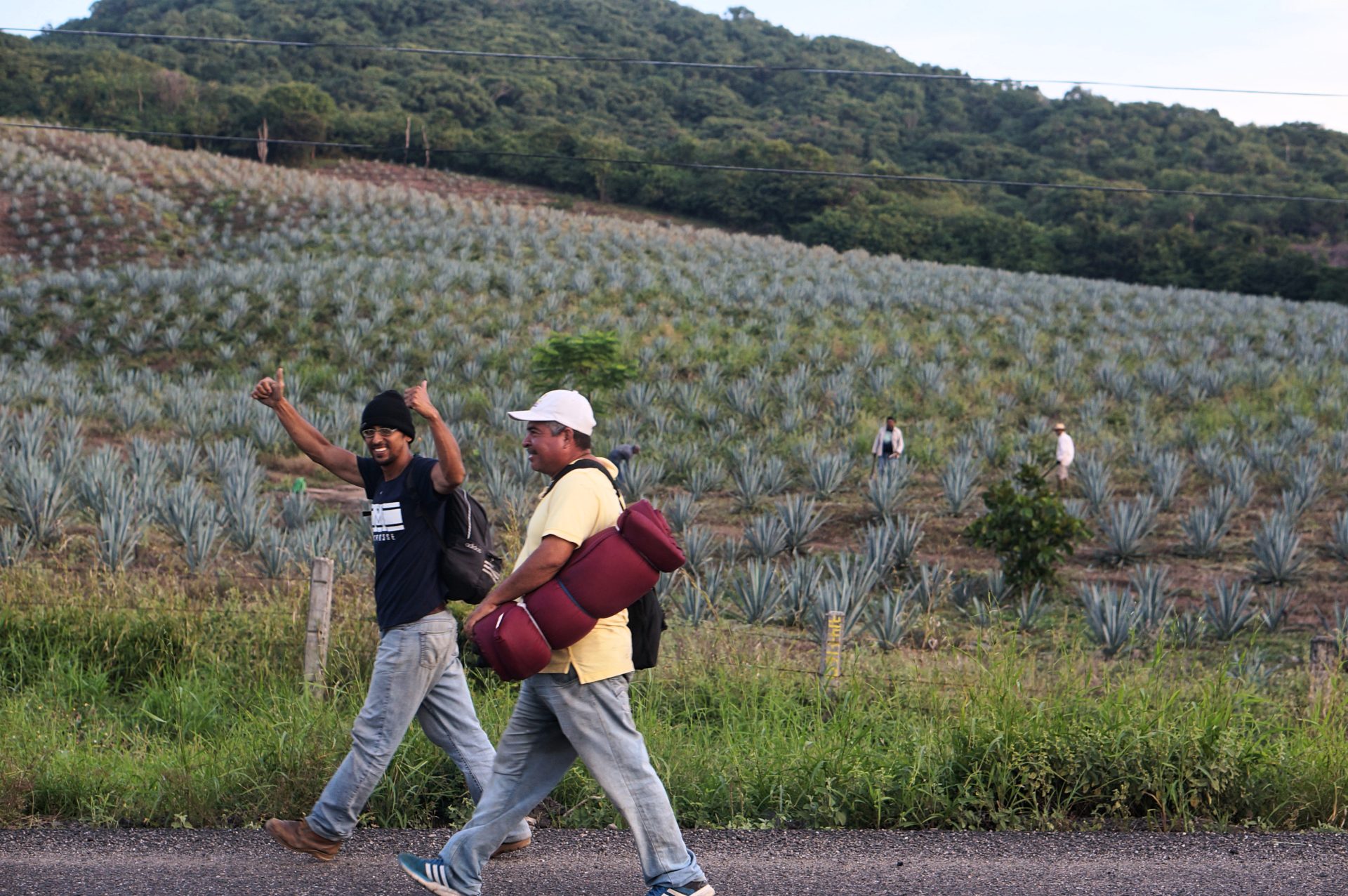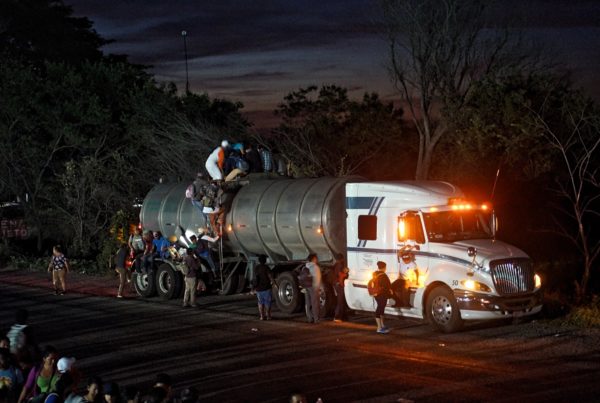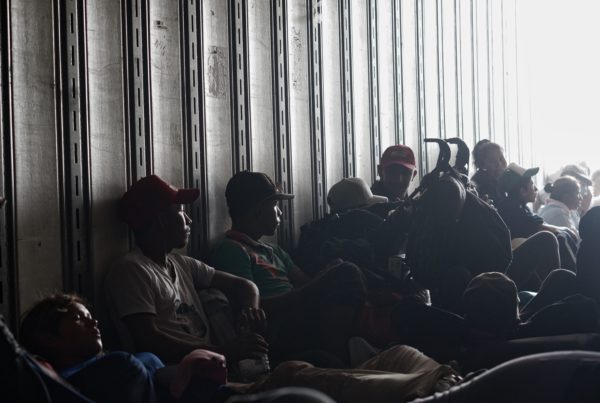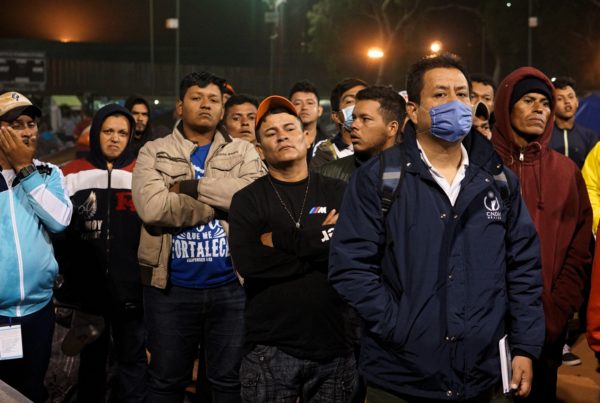The caravan passes reddish-brown corn fields, little haciendas and rancheros, jimadores cutting agave plants. It’s a picturesque setting for a mass migration. For those migrants shouldering backpacks, striding towards wind turbine farms, the searing sun beats down on their bare heads. The wind drags them this way and that. The elements drain them of energy.
The Hondurans and I arrive in Juchita ahead of the caravan and I realise just how little is planned. The organisers of the caravan only dictate when the group leaves each day and where it stops. Otherwise, the people are free to do as they please. Without money and being foreigners in a strange land, the Hondurans have nowhere to go and nothing to do.
“We will wait for the caravan,” Antonio says.
Walk and wait, wait and walk. They only have one purpose on this trip and it’s to reach the United States. Their life, for the time being, centres on migration.
When they sit on the side of the road, people stare openly at the dirt smears on their clothes and shoes; at their tired faces and their small bags attached to their backs. There is exhaustion in the Hondurans’ stance, but also indifference. They don’t care what these people think, as long as they reach the land of opportunity.
In the next town of Ixtepec there is a free guest house for migrants. It allows them a chance to wash, eat, rest. There are trees and shade. Its peaceful atmosphere is a welcome break from the long road and harsh climate. I am exhausted and I’ve only been on the road one night, and I wasn’t walking.
When the Hondurans are washed, with clean hair and clean clothes, they could be mistaken for different people.
“Do you guys want to go for a swim?” I ask.
They look up at me, surprised.
“I love water,” Tina says.
We drive a bumpy, dirt road towards the heart of Oaxaca. We pass through an alley of trees and enter an oasis of natural, freshwater pools called Agua de Ojos. Antonio the gordito is first in the water, recklessly diving head first into a shallow pool.
“It’s beautiful,” he shouts to the rest of the group.
Suddenly, they’re all in the water and I’m left holding Madeline. They pose for photos with big smiles. Antonio belly flops into the water from Vincent’s shoulders which makes everyone laugh.
When we leave the pools later that day, I overhear Eva murmur to Vincent:
“We had fun, for a short time, at least.”
That evening we learn the caravan has decided on a significant change of route. Instead of travelling through Oaxaca to Mexico City by bus, the caravan will aim for Veracruz on foot. An official statement was published by members of “The Exodus”.
“Today there was the possibility of more than 70 buses from different sources of support, which under pressure from the federal government of Mexico withdrew their support, leaving the Exodus the only option to continue on foot towards Veracruz, a state with a high risk of violence at the hands of organised crime.”
The Exodus members were also concerned by the lack of access to medical services on the remote, mountainous route to the city of Oaxaca.
“Any aggression against Exodus members and accompanying persons will be the full responsibility of the Mexican federal government,” the statement concluded.
With this in mind, the Hondurans decide to split from the caravan. They believe the route to Veracruz is too dangerous. They are fearful of Los Zetas and the other violent drug cartels which operate in the Gulf region and target vulnerable migrants.
They will pay for bus tickets to Oaxaca City. It’s a safer route, but more expensive and will stretch their tight budget. From there they will go to Mexico City, then San Luis Potosi followed by the border. They may have to stop along the way to earn more money. Perhaps they will join up with the caravan at a future date.
It later emerges that 100 migrants, including women and children, went missing in the state of Puebla. Human rights activists and officials in the southern states of Oaxaca and Veracruz, claim the migrants were kidnapped and handed over to Los Zetas.
Although their future is uncertain, the migrants’ optimism remains. Their hope for a better life sustains them on the difficult journey ahead. They are not naïve to the reality of the “American dream”; Vincent has lived that hardship. But none of them want to return to the dangers of Honduras.
“I want a better future for my children because until now I have had nothing to offer to them,” Vincent tells me. “All I want is to work hard so I can provide for my children.”



